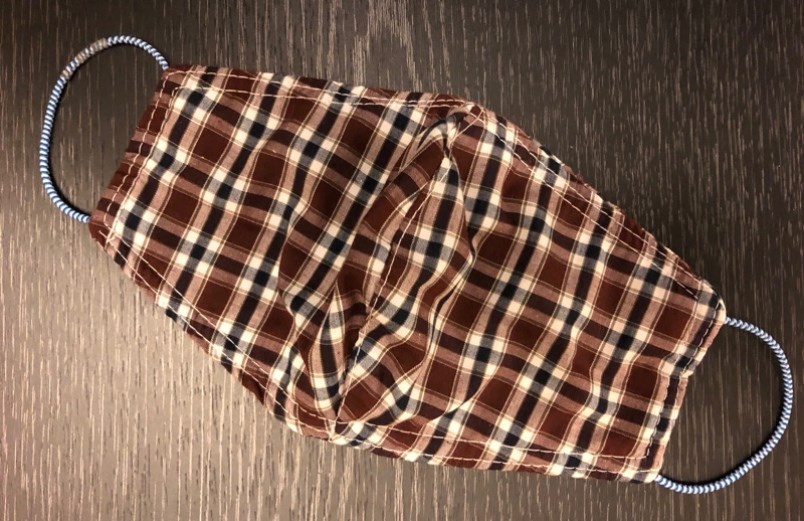Medical officials are still stopping short of recommending the general public wear homemade masks, but they are suggesting a cloth mask could help slow the spread of COVID-19.
Dr. Charles Gardner, medical officer of health for Simcoe Muskoka District Health Unit, said today a homemade cloth mask could help someone who doesn’t know they have the virus keep from spreading it to others.
“People should be aware they’re not of proven value,” said Gardner. “If there is any value in them it’s more from the point of view of avoiding infecting others.”
A cloth mask could keep droplets from your nose and mouth from entering someone else’s airway or landing on and contaminating a surface.
“They have not been shown to prevent respiratory viruses from entering your airway,” said Gardner.
But it shouldn’t replace any of the other preventative measures being recommended by public health organizations in the province and country.
“What’s really important is that people do their physical distancing and their handwashing,” said Gardner.
He also recommends people stay home, think twice about whether or not they need to go out, and if they do, to focus on quick trips for essential items while still maintaining a two-metre separation with any other people.
“The more we do, the better we do this, the less that surge will be,” said Gardner. “April is a very key month for us in this outbreak. This month we’re going to see the extent to which the surge occurs. If we were very successful it will be a limited surge. If we were less successful it will be a bigger surge more likely to overwhelm our healthcare system.”
There are now 98 lab-confirmed COVID-19 cases in the region, more than 10 of those at Bradford Valley, a long-term care facility.
Gardner stressed members of the general public should not be wearing medical-grade masks.
“All of those we really need to retain for healthcare workers because of a limited supply,” he said.
Additionally, there are specific fits and protocols that make surgical masks and N95 masks effective PPE. Without following those specifications, a medical-grade mask will not offer effective protection.
If you are experiencing any symptoms of COVID-19 including coughing and sneezing, stay home, indoors, for at least 14 days.
Dr. Theresa Tam, Canada’s chief medical officer of health, said today people can use homemade cloth masks to prevent spreading the virus to others. She said there is increasing evidence people can transmit the virus before knowing they are sick, and keeping their mouth and nose covered while in public - in addition to frequent handwashing and physical distancing - could help reduce spread.
The Centers for Disease Control and Prevention (CDC) has posted some tips on its website on using cloth face masks to help slow the spread of COVID-19.
The CDC says to use a mask that fits snugly, is secured with ties or ear loops, includes multiple layers of fabric, and can be laundered and machine dried without changing shape.
If you are using a cloth mask, put it on before you go out in public, and then don’t touch it or your face again. Once at home, remove the mask without touching your face, and put it in the laundry. Wash your hands thoroughly and disinfect surfaces you touched on the way in.
The CDC also states a cloth face mask is an additional, voluntary public health measure and should only be used with proper handwashing and physical distancing practices.
You can find sewing and no-sew instructions for cloth face masks on the CDC website.